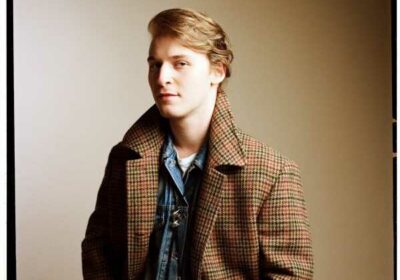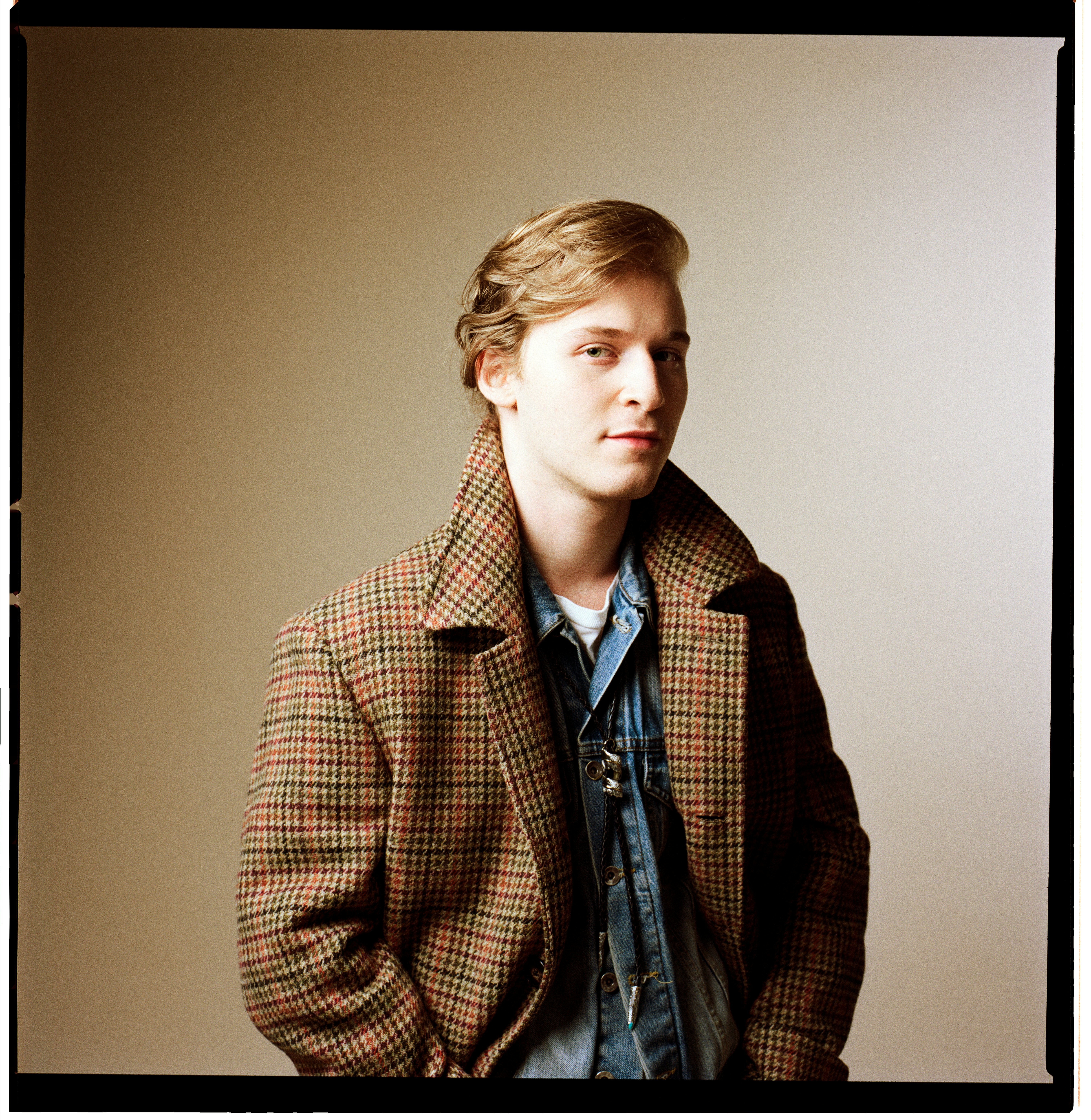‘The White Lotus’ and ‘Fear Street’’s Fred Hechinger Is Just Getting Started

If you’ve kept your eyes on indie film and auteurist television in the last few years, you’ve likely spotted Fred Hechinger, the now-21-year-old actor who made a name for himself working with directors like Bo Burnham, Steven Soderbergh, Barry Jenkins, and Mike White. In early June, the excitable young actor materialized on a Zoom screen, surrounded by books and CDs, to speak with W about his latest projects: the Fear Street trilogy airing throughout the month of July on Netflix, (adapted from the R. L. Stine books by director Leigh Janiak), and The White Lotus, White’s satirical miniseries airing July 11 on HBO.
Hechinger has deep New York City roots—one of his great-grandmothers grew up in Jackson Heights, he explained, before quickly launching into the story of how his parents met. As an adult, his mother lived in the apartment she had grown up in as a child, and when she started dating the man who would become Hechinger’s dad, he realized the home looked familiar. He couldn’t place it, until he had an a-ha moment: his grandmother lived a couple of floors down, in a similar-looking unit. “They say it as if it’s really unromantic, but I still think it’s kind of sweet,” Hechinger said.
As an only child, the actor’s parents instilled in him an appreciation for the arts at a young age. “If my parents had plans, like going to a play, I would usually be included, and I didn’t realize how special that was until I look back on it now,” he said. “Being in a movie theater or being in a playhouse was the spot. I wanted to be around those people—the people who were making things seemed like the company that I wanted.”
But it was an older classmate of his who convinced him to sign up for acting and improv classes downtown. “It was somewhat improvised, somewhat activist work based on people’s lives. We created the characters and would write the plays, and that’s what I was looking for—a place where we weren’t looked down upon as artists,” he said, remembering that he was the only boy in a class full of high school girls, who were “really kind and open about their process, even though I had no right to be there.”
He quickly became obsessed with Upright Citizens Brigade and found a community of budding performers throughout high school. Soon after, he was cast in a small part in the A24-produced Eighth Grade, his first role in a film released on a big screen. Hechinger then appeared in Vox Lux, Let Them All Talk, News of the World, The Woman in the Window, and the recently premiered Italian Studies—thus securing a handful of acclaimed indie films under his belt. On television, he was most recently seen in The Underground Railroad, where he played the younger version of Joel Edgerton’s Arnold Ridgeway, a slave catcher (a role for which he desperately tried to grow as much facial hair as possible, even though it didn’t amount to too much).
Another period piece Hechinger is happy to say he is a part of is the Fear Street horror series, which takes place in three different time periods and required the actor to really dive into the research aspect of the job. “Every period piece is made in the context of the moment, always equally trying to capture something about now through then,” he said. “But as an actor, separate from that, there are so many new details to learn, and I love the research part of it. With period pieces it’s guaranteed that you get to research a lot.”
Concurrently with the airing of the Fear Street trilogy on Netflix, Hechinger stars in something very contemporary on HBO: The White Lotus, a series that seamlessly interweaves the narratives of the guests and employees at a resort. White paints a satirical portrait of a wealthy white family on vacation in Hawaii, with Connie Britton playing Hechinger’s mom, Steve Zahn as his dad, and Sydney Sweeney as his bully of an older sister who spends half her vacation time performatively reading texts by Camille Paglia, and the other half taunting her younger brother with jeers about his addiction to his phone. “I was a huge fan of Enlightened, School of Rock, Year of the Dog—pretty much anything Mike White has done,” Hechinger said. “He’s so incredible at capturing misery but also our desperate hunt for salvation. There’s so much searching in his work, and hope, in a way, even though he is sometimes dark. I felt so safe being in his world.”
“So many scenes are like, what happens if you just twist the cringe even further and really go there? That’s the loveliest feeling as an actor,” he went on, describing the nature of White’s work and referencing the dinner scenes in which his character often awkwardly observes his privileged family’s arguments about their wealth and their right to take leisure time. “Mike was getting a lot of stuff right. There are native people who live on the land and are very kind and open and who showed me around. They have been fighting for independence, but then also there are white people who really are taking over and monopolizing,” Hechinger said.
Hechinger also pointed out that the realism of White’s portrait of ignorant privilege extended beyond the scope of the series. The White Lotus was shot on location at the Four Seasons Hotel in Maui during the Covid-19 pandemic (safely and in a socially distanced cast and crew bubble, of course). For the first month or so, the hotel was devoid of guests. When Covid protocols shifted and resort guests started to trickle in, however, Hechinger noticed that many of them behaved in ways not too far off from the satirized actions displayed by his character and those of the other actors. “Every single day, I would see a group of people who were the characters,” he said. “It’s only stronger for someone to reveal and unearth a lot of the kind of myopic limit of wealth and obliviousness. Mike has done it in a way where he doesn’t discount characters—everyone is human, but in their humanity they’re also awful. It’s important to go there. Humanizing a character doesn’t mean going easy on them, it means trying to show as much as you can.”
“I find I’m more moved by character and filmmaker or the group of actors than I am by genre,” Hechinger went on, adding that the question he asks himself when a project comes his way is, “Who’s the person that I get to play and who are the people I get to build this with?” But with genres like horror, Western, and historical drama under his belt, the actor still has his sights set on another corner of film. “The movies I watch alone and turn to when I’m down are romantic comedies and musicals,” he admitted with a smile. “I would love to do both of those one day.”
Source: Read Full Article
